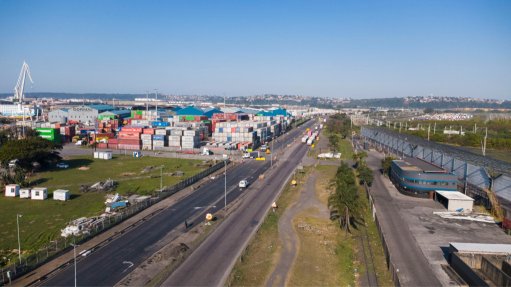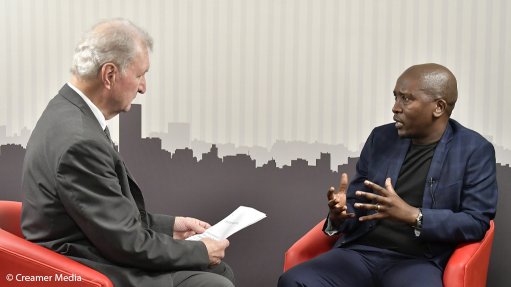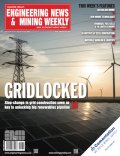Proof of concept for sharing rare disease data cross border completed
The World Economic Forum's (WEF's) precision medicine team's Breaking Barriers to Health Data pilot project has produced a proof of concept that outlines how countries can share rare-disease data safely and anonymously across borders using pre-existing datasets of coded and de-identified patient information, as well as access other datasets across country borders with similar data types.
The Breaking Barriers to Health Data project is designed to ensure that people living with rare and other complex diseases are not missing out on life-saving diagnoses and treatments. By following the findings in this guide, the WEF hopes to encourage a cohesive, symbiotic relationship between health institutions throughout the world that may otherwise have different models of consent, operations security and technology.
A health data consortium was developed with the Australian Genomics Health Alliance, Genomics4RD, Genomics England, and Intermountain Healthcare, as well as 85 stakeholders from academia, government and industry, with the aim of sharing genomic data for rare diseases across borders.
Australia and Canada have reached an agreement on how to deploy this proof of concept, potentially helping the 8% of their populations living with a rare disease, and will likely test it later this year.
"A rare disease is difficult to diagnose and without clear treatment options. There are 7 000 rare diseases identified so far, often with broad symptoms, varying in severity from patient to patient," the WEF says.
"This causes not only a lengthy and difficult diagnosis process, but also a lack of available data for treatment given only a handful of people living in the same country are suffering from the same disease. In fact, treatments may be under way in one country, unknown to patients in another," it explains.
Many countries want to share data, in theory, but are unable to do so owing to data security, patient privacy and incompatibility in operating standards.
A federated data system is a technical solution that can mitigate many of these concerns. Participating in a sensitive health data consortium is the only way to maximise volumes of data already collected, sitting in silos around the world.
The Breaking Barriers to Health Data project aims to craft and test a scalable governance framework to support the effective and responsible use of federated data systems to advance rare disease diagnosis and treatment. It is part of the WEF's Health and Healthcare platform. The first case study will focus on enabling cross-border access to rare disease genomic data between four countries.
“Sorting through the human genome is like going through 100 000 digital photos; it is a complex task that takes time and money,” says WEF Breaking Barriers to Health Data project lead Lynsey Chediak, who lives with a rare disease and was fortunate to be diagnosed at the age of five.
“It takes on average five to seven years to diagnose a rare disease. Owing to the time to diagnose these diseases, in some places, one-quarter of children will not live to see their tenth birthday. That can change. Sharing genomic data is a huge undertaking, but it is not particularly difficult technically. The larger challenge is how to form the necessary relationships between institutions that enable trust and transparency and sustained, predictable operations. Our project showed us that this can be done," she says.
“Limited data is a common feature of rare diseases, resulting in high uncertainty, which impacts every part of people’s lives,” comments Rare Voices Australia CEO Nicole Millis.
Australia’s National Strategic Action Plan for Rare Diseases calls for improvements to rare disease data collection and use, including best-practice safe storage and data sharing.
One of the critical enablers of this is "state, national and international partnerships", she notes.
The safe and anonymous sharing of rare disease data across borders will provide key decision-makers at all levels with greater knowledge of rare diseases, which can facilitate more responsive and appropriate services for people living with a rare disease, as well as their families and caregivers.
“This has been a valuable exercise to explore how to maximise the utility of our existing datasets. Participating in this mode of international collaboration will be increasingly important to progress our shared knowledge of genomics – particularly in rare diseases,” says Australian Genomics Health Alliance manager Tiffany Boughtwood.
“Working with the forum over the past two years, we have created a clear governance structure and strong partnerships with like-minded genomics institutions beyond Australia’s borders.”
Interoperability is key to enabling the responsible sharing of genomic and health related data for the benefit of humans everywhere, emphasises Global Alliance for Genomics and Health (GA4GH) CEO Peter Goodhand.
“At GA4GH, we develop the technical standards that allow for such interoperability, but getting them into real-world practice is the most critical step. Through collaborations like the Breaking Barriers to Health Data project. which leverages the GA4GH Data Use Ontology and Framework for Responsible Sharing of Genomic and Health-related Data, we are beginning to see how our work can add real value to the global patient community,” he adds.
Comments
Announcements
What's On
Subscribe to improve your user experience...
Option 1 (equivalent of R125 a month):
Receive a weekly copy of Creamer Media's Engineering News & Mining Weekly magazine
(print copy for those in South Africa and e-magazine for those outside of South Africa)
Receive daily email newsletters
Access to full search results
Access archive of magazine back copies
Access to Projects in Progress
Access to ONE Research Report of your choice in PDF format
Option 2 (equivalent of R375 a month):
All benefits from Option 1
PLUS
Access to Creamer Media's Research Channel Africa for ALL Research Reports, in PDF format, on various industrial and mining sectors
including Electricity; Water; Energy Transition; Hydrogen; Roads, Rail and Ports; Coal; Gold; Platinum; Battery Metals; etc.
Already a subscriber?
Forgotten your password?
Receive weekly copy of Creamer Media's Engineering News & Mining Weekly magazine (print copy for those in South Africa and e-magazine for those outside of South Africa)
➕
Recieve daily email newsletters
➕
Access to full search results
➕
Access archive of magazine back copies
➕
Access to Projects in Progress
➕
Access to ONE Research Report of your choice in PDF format
RESEARCH CHANNEL AFRICA
R4500 (equivalent of R375 a month)
SUBSCRIBEAll benefits from Option 1
➕
Access to Creamer Media's Research Channel Africa for ALL Research Reports on various industrial and mining sectors, in PDF format, including on:
Electricity
➕
Water
➕
Energy Transition
➕
Hydrogen
➕
Roads, Rail and Ports
➕
Coal
➕
Gold
➕
Platinum
➕
Battery Metals
➕
etc.
Receive all benefits from Option 1 or Option 2 delivered to numerous people at your company
➕
Multiple User names and Passwords for simultaneous log-ins
➕
Intranet integration access to all in your organisation

















